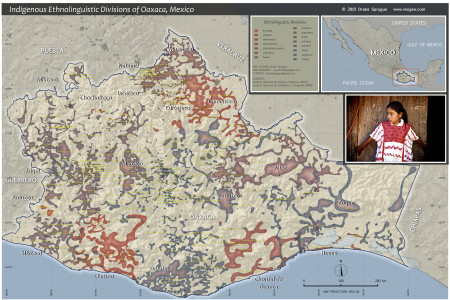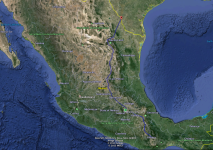Mapping Linguistic Diversity

Mexico’s indigenous ethnolinguistic landscape is rich in diversity and complexity. While conducting research into the geography of ethnic people groups in southern Mexico from 2011-2013, we visited many indigenous communities. Amazingly, in Oaxaca state, by far Mexico’s most ethnically diverse, about 180 indigenous languages are still in use today. While many of these languages are disappearing, you will still encounter tribal communities where Spanish is hardly if at all spoken. Mexico’s Instituto Nacional de Lenguas Indígenas (National Indigenous Languages Institute, or INALI) released its most recent Catalogue of Indigenous Mexican Languages in 2008, listing each known indigenous language and dialect with… Continue reading

